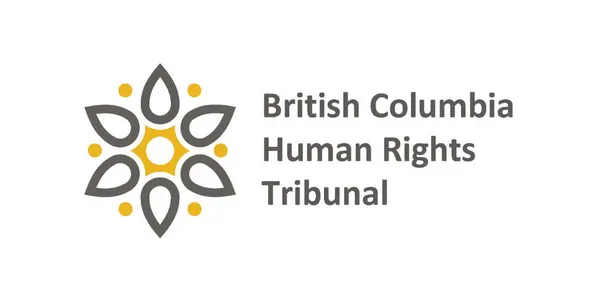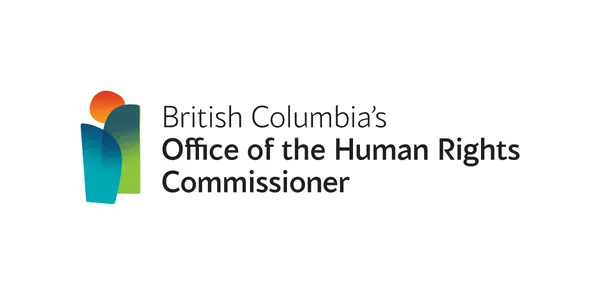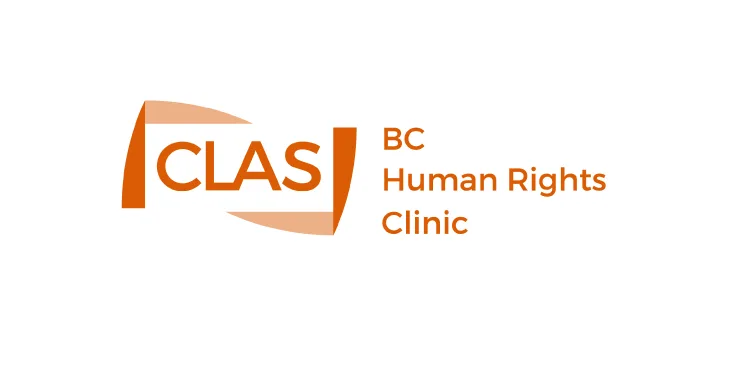
Landlords must follow human rights laws in their dealings with tenants.
Human rights law helps protect everyone from discrimination in housing. Whether you’re renting, living in a strata, or buying a home, you can’t be treated badly or unfairly because of certain parts of your identity, such as race, sex, or any disability. Learn to identify discrimination, and steps to take if you’re discriminated against in housing.
Content warning
This page describes experiences of discrimination. It may bring up difficult or traumatic memories or feelings.
What you should know
Discrimination is when someone is treated badly or unfairly because of certain parts of their identity, such as race or sex. The law calls these protected characteristics.
Under BC’s Human Rights Code, the protected characteristics include:
your race, colour, ancestry, or where you’re from
your Indigenous identity
your sex, sexual orientation, or gender identity or expression
any physical or mental disability
your religion
your marital status
your family status, such as if you have kids
your age
any lawful source of income, including income assistance
Some qualifiers
The last three items listed are protected characteristics in some situations but not others:
If you’re renting, family status, age, and lawful source of income are protected characteristics. But there are some exceptions for family status and age, which we explain shortly.
If you’re living in a strata, family status and age are protected characteristics. But lawful source of income is not.
If you’re buying property, none of family status, age, or lawful source of income are protected characteristics.
Discrimination can take many forms
Discrimination can occur when someone is treated badly because of a protected characteristic. For example, if a landlord refuses to rent to a couple because they have small children.
Discrimination can also be less direct. Sometimes a policy or practice that applies to everyone can have a discriminatory effect on some people. For example, consider a person who lives in a strata and uses a wheelchair. There’s no ramp to a common area, so they can’t access it. That could be discrimination. Due to their disability — a protected characteristic — they’re negatively affected by a service the strata is responsible for — maintaining common property.
Sometimes the systems you interact with can work to discriminate against you. This is called systemic discrimination. It includes rules, policies, attitudes and structures that privilege some groups and disadvantage others. Here, we explain systemic discrimination in more depth.
Intention doesn’t matter
Discrimination doesn’t need to be intentional. It’s the impact the treatment has on someone that’s important.
Context matters
BC law protects people from discrimination in three areas related to housing: renting a place, living in a co-op or strata, and buying a home. We’ll look at each in turn.
Under BC law, you’re protected from discrimination when renting a place to live. You can’t be treated badly or unfairly because of a protected characteristic. This applies to all stages of a tenancy, including entering a tenancy agreement, the terms and conditions of your rental, and being evicted.
What amounts to discrimination
There must be a link between being treated badly or unfairly and a protected characteristic. This could be quite clear — for example, if a landlord says they’re evicting you because you’re on welfare. This would be discrimination based on lawful source of income. (Note this protected characteristic applies to tenancy situations, but not to stratas or when buying a home.)
Other times, you may be able to infer that a protected characteristic is a factor. Let’s say a landlord refuses to rent to a single mother with two children. But then the landlord rents to a couple without children the following week. This could be discrimination based on family status.
The protected characteristic doesn’t need to be the main or only reason for how you’re treated. It’s enough if the characteristic is a factor in how you’re treated.
Landlords also have a duty to protect you from discrimination. Say a neighbouring tenant is making racist comments towards you and your family. This could be discrimination based on race or colour. If you tell your landlord about this and they don’t do anything to stop it, they could be responsible for the discrimination.
Some exceptions
There are some exceptions to how discrimination laws play out in tenancy situations. For example, it’s a defence to discrimination if a person renting out a space shares sleeping, bathroom, or cooking facilities with the tenant.
Another example: it’s a defence to discrimination based on age or family status if every space in a residential building is reserved for rental to people who are age 55 or older.
The BC Human Rights Tribunal explains these and other exceptions.
Renters have rights under BC’s tenancy laws
Renters are covered under the Human Rights Code. They are also protected under BC’s residential tenancy law. If you have a dispute with your landlord, one of your options is to complain to the Residential Tenancy Branch. That’s the government office that enforces tenancy laws. Our playbook for tenants has details.
“Shortly after moving into my condo, I started having breathing problems. My doctor recognized I was having an allergic reaction to the carpeting. I reached out to my strata council. I asked for an exemption from the bylaw requiring a particular carpeting in all units. They agreed to accommodate me, and installed a hypoallergenic carpet.”
– Anthony, Abbotsford, BC

Under BC law, you have the right to be free from discrimination when accessing services customarily available to the public. As strata corporations provide services to their members, this law applies to them. This means stratas must not discriminate in their delivery of services, such as:
access to the building or common areas
use of intercom systems
enforcement of bylaws or rules, such as about pets, smoking, types of flooring or window coverings, and so on
What amounts to discrimination
You can’t be treated badly or unfairly by the strata because of a protected characteristic. There must be a link between being treated badly or unfairly and a protected characteristic. It may be explicit — for example, if a member of the strata council uses a racist slur against you.
But often it’s more subtle. You may have to infer a connection. Let’s say you have asthma and your neighbour frequently smokes on their balcony. The smoke wafts into your unit. It aggravates your condition and causes you coughing fits. You raise the issue with your strata, but they don’t do anything about it. This could be discrimination. Because of your health condition, you’re negatively affected by the rules around smoking, which the strata is responsible for enforcing.
A strata cannot rely on a vote of its members to avoid its duties
Stratas have a duty to accommodate owners who face a disadvantage because of who they are. (We explain the duty to accommodate below.) Sometimes, the changes required to accommodate someone prove unpopular with other strata owners. For example, maybe able-bodied owners don’t like the idea of having a ramp installed in the common area to accommodate an owner who uses a wheelchair. To show their disapproval, they may vote against the proposal at a strata meeting.
Importantly, the strata can’t rely on a vote of its members to avoid its duties under human rights law. If a strata refuses to provide reasonable accommodation to you simply because the proposal was voted down at a meeting, they may still have discriminated against you. The BC Human Rights Tribunal has guidance for stratas on how to deal with accommodation requests.
Avenues to raise an issue with your strata
In a strata, everyone must follow bylaws and rules that set out what the strata will be like to live in. If someone violates a bylaw or rule, you can complain to the strata council. See our guidance on dealing with your strata for the steps to take.
Under BC law, you have the right to be free from discrimination when buying a house, condo, or other property. You can’t be treated badly or unfairly because of a protected characteristic in buying the property. This covers the transaction itself as well as the terms and conditions of the contract.
To be discrimination, the poor treatment must be connected to a protected characteristic. This could be relatively obvious — for example, you are Asian and your agent mentions the seller would prefer a local buyer: they had mentioned off-hand that “Chinese people are coming in and snapping up all our properties.” Or it could be more subtle, and you can only infer that a protected characteristic is a factor. For example, a seller reverses their decision to accept your offer after finding out that you’re Jewish.
The protected characteristic doesn’t need to be the main or only reason for the seller’s conduct. It’s discrimination if the characteristic is a factor in your treatment.
If you face a disadvantage due to a protected characteristic, others may have a duty to accommodate you. The person who owes the duty must take all reasonable steps to counter the disadvantage.
This duty applies to:
landlords in a tenancy
strata councils
someone selling a house, condo, or other real property
What the duty to accommodate requires depends on the context. It may involve a landlord repairing a staircase to make it safe for a tenant who has a physical disability. Or it may require a strata to make an exception to its bylaws to allow a resident to keep the emotional support dog they rely on for their mental disability.
Sometimes, accommodation isn’t possible because it would cost too much. Or there may be negative consequences for others. To account for this, the duty to accommodate only extends to the point that it causes undue hardship. The strata will have to show they did everything they reasonably could to address the barrier.
If you ask for accommodation, you must cooperate with the other party involved. You may need to share certain information. For example, you may need to tell your landlord about your physical limitations so they can plan upgrades to your rental unit. In the end, both sides may need to compromise to reach an acceptable solution. The perfect outcome isn’t guaranteed.
Options for free or low-cost legal help
Identifying a duty to accommodate and determining what amounts to undue hardship isn’t straightforward. If you think a duty to accommodate may apply in your situation, consider getting legal advice. Here are some options for free or low-cost legal help.
Work out the problem
If you think you’ve experienced discrimination, the first step is to get your thoughts together. Make detailed notes of what happened. Do this as soon as you can.
Make sure you note:
What happened: describe the way you were treated unfairly.
Why you think this happened: the protected characteristic you think was a factor in the unfair treatment.
The impact: details of how this experience has had a negative effect on your life.
Who else is involved: as in, who can back up your story.
If the discrimination results from a policy or practice, write down when you first noticed the problem. Get a copy of any bylaw or agreement that contains the policy or rule at issue.
Sometimes it can be hard to figure out whether you were discriminated against. Your answers to these three questions can help you decide:
Is a protected characteristic in play? (See above, under what you should know, for the personal characteristics protected from discrimination.)
Was I treated in a way that had a negative impact on me?
Was the protected characteristic one of the factors in how I was treated?
You’ll need to show how the answer is ‘yes’ to all three of these questions in order to show you were discriminated against. (The protected characteristic doesn’t need to be the only or most important factor in how you were treated. It just needs to be a partial factor.)
It’s enough to show that the facts support a “reasonable inference” of discrimination. For example, if a Black couple puts in a higher offer than a white couple to buy a condo, but the seller accepts the lower offer, there may be a reasonable inference of discrimination on the basis of race or colour.
Consider getting legal advice
At this point, it can be very helpful to speak to a legal professional. They can help explain your rights and your options. The BC Human Rights Clinic offers a range of free legal services, including summary advice. (If you are Indigenous, you can ask to speak directly to an Indigenous legal advocate.) The Lawyer Referral Service can help connect you with a lawyer for a free 15-minute consult. For more options, see below under who can help.
If you’ve experienced discrimination, consider raising the issue with the other party involved. It could be a landlord, a strata council, or someone you’re buying property from. They may not be aware that their words or actions are negatively impacting you.
Propose a solution to the problem. This may involve asking them to remove a barrier you face, or change a policy or practice. Be open-minded and willing to find a reasonable compromise.
In BC, a human rights complaint is made to the BC Human Rights Tribunal. It operates like a court but is less formal. If you’re successful, the tribunal can make an order to compensate you. They can also order other remedies. Generally, you must file the complaint within one year of the incident you’re complaining about. We walk you through what’s involved in making a human rights complaint.
Get help with filing a complaint
The Human Rights Clinic may be able to help you file a complaint with the tribunal. The clinic may also be able to assist you at a hearing.
Who can help
The BC Human Rights Tribunal lists organizations that can help if you feel you’ve been discriminated against. Below are some of the key ones.

BC Human Rights Tribunal
Receives and resolves discrimination complaints under BC law.

BC’s Office of the Human Rights Commissioner
Works on systemic human rights issues and educates people about human rights in BC.

BC Human Rights Clinic
Provides free assistance and representation to those who qualify for help with a discrimination complaint under BC law.

Access Pro Bono's Free Legal Advice
Volunteer lawyers provide 30 minutes of free legal advice to people with low or modest income.

Access Pro Bono’s Everyone Legal Clinic
Clinicians provide affordable fixed-fee services on a range of everyday legal problems.

Lawyer Referral Service
Helps you connect with a lawyer for a complimentary 15-minute consult to see if you want to hire them.

BC Legal Directory
Search for a lawyer by community or legal issue. From the Canadian Bar Association, BC Branch.

